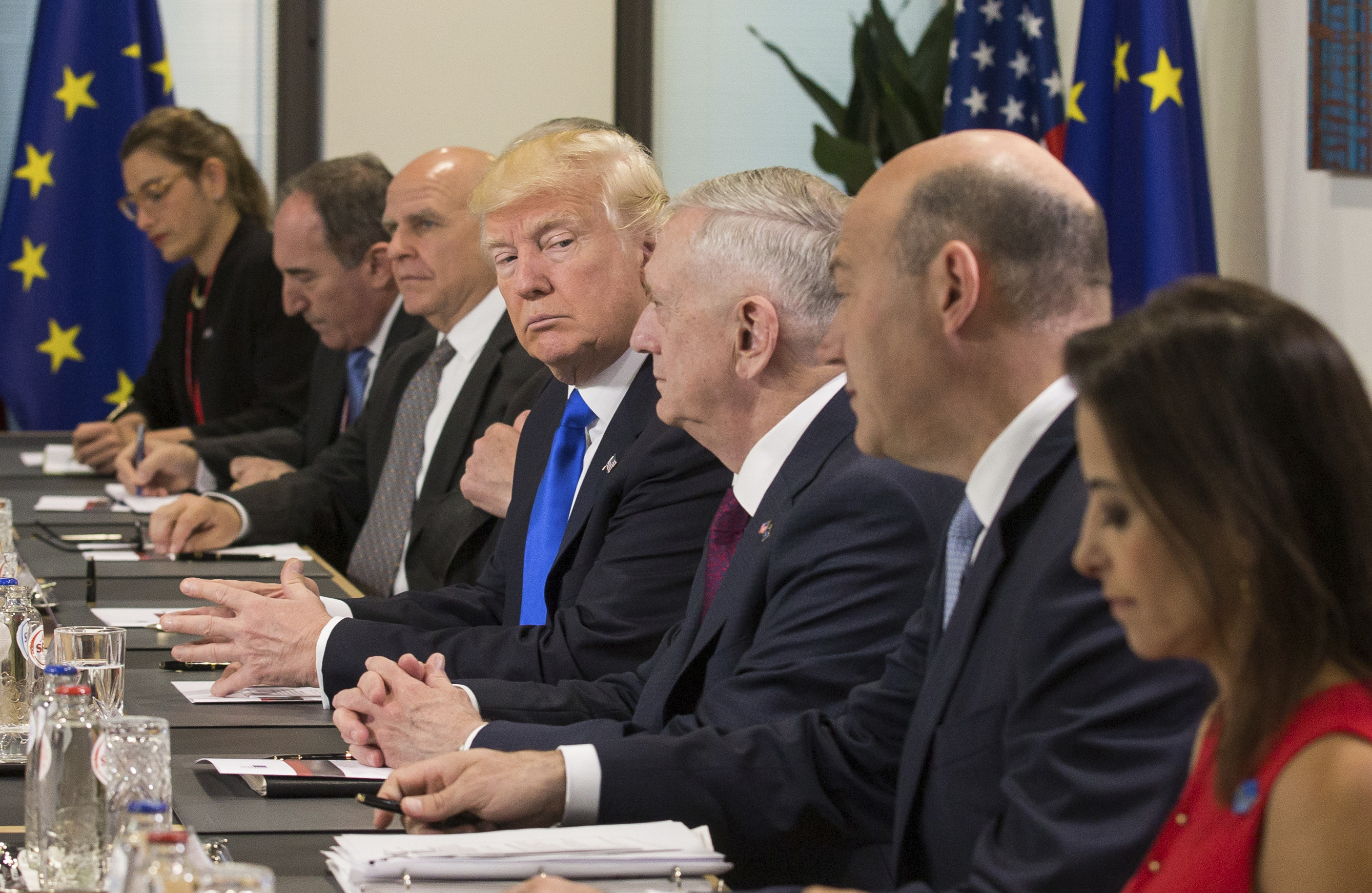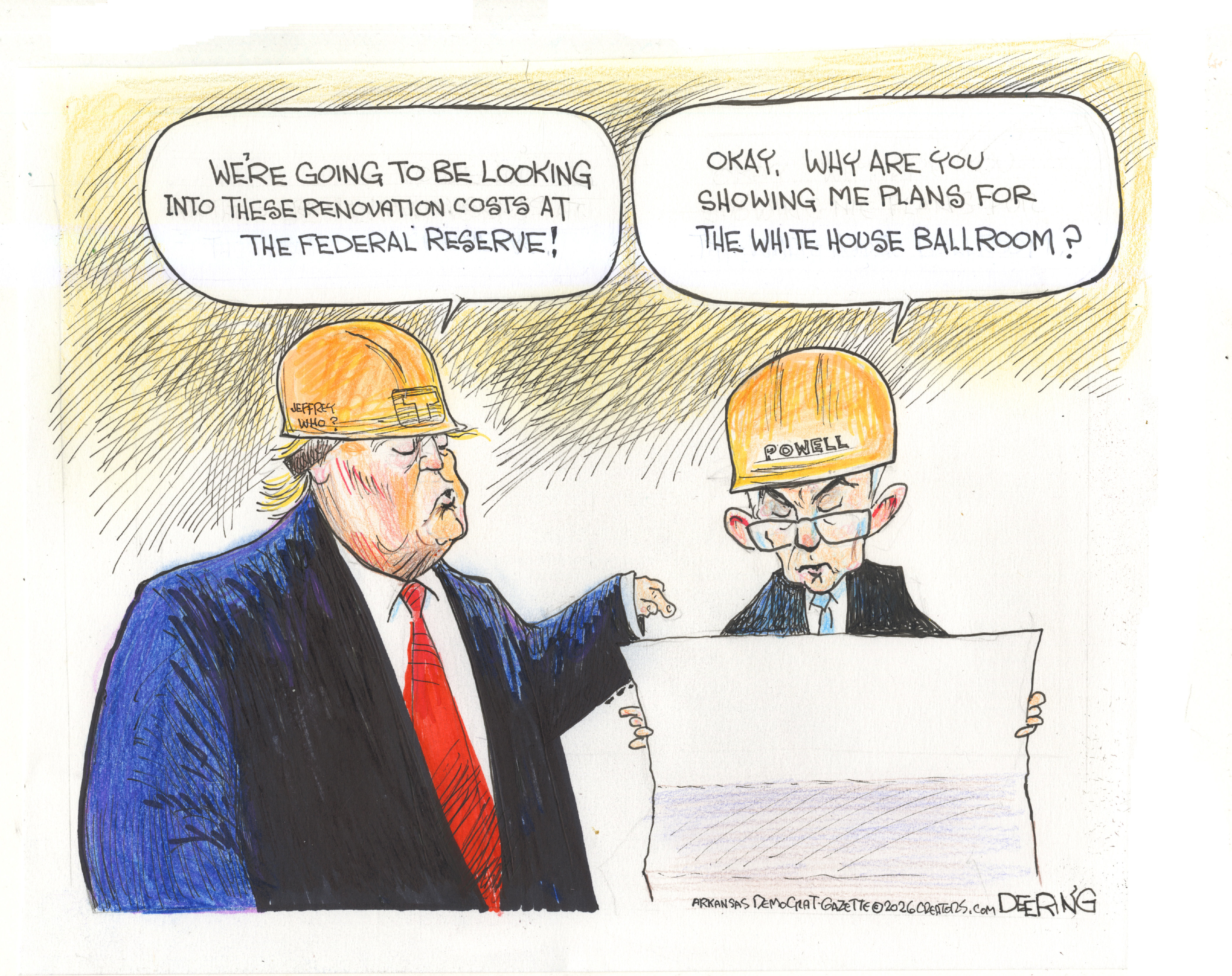How the world can contain Trump's climate lunacy
Under Trump, America is a rogue state. Will it get sanctioned?


Imagine if on Dec. 8, 1941, President Roosevelt had insisted in a speech before Congress that the Japanese navy had not attacked Pearl Harbor, and in fact anyone reporting such was part of a TORPEDO BOMBER HOAX. That would have harmed the national interest roughly on a scale with what President Trump did Thursday, with his announcement that he would be withdrawing America from the Paris climate accord.
His justifications for doing so were, unsurprisingly, incoherent claptrap. He said the agreement was both "draconian" and "non-binding," complained at length about a moderate fund to help developing countries transition to green energy, yet swore — ludicrously — that he "cares deeply about the environment" and would be open to a different agreement. It was obviously just a bunch of reverse-engineered fluff to justify a decision driven by ideology.
As I have previously written, under Trump the United States has ceded whatever lingering threads of global leadership it had not already shredded by pointless wars of aggression and financial doomsday devices; we are now something of a pariah state. On climate change, it now falls to Europe, China, and India to corral this blundering, addled elephant of a nation, until our janky political machinery can eject Trump and the Republican Party from power. Here's how they can do it.
The Week
Escape your echo chamber. Get the facts behind the news, plus analysis from multiple perspectives.

Sign up for The Week's Free Newsletters
From our morning news briefing to a weekly Good News Newsletter, get the best of The Week delivered directly to your inbox.
From our morning news briefing to a weekly Good News Newsletter, get the best of The Week delivered directly to your inbox.
The Paris accord was the boldest and most promising step so far towards solving the most urgent problem facing humanity today — and an improvement in design after previous efforts like the Kyoto Protocol failed. Instead of attempting a traditional legally-binding treaty, like the effort that successfully took care of the ozone hole, negotiators decided on a sort of loose arrangement that set broad goals and gave each signatory nation wide latitude to figure out their own best ways forward.
Now, as Professor William Anderegg wrote at the time of their adoption, the voluntary commitments specified in the treaty were not enough to reach the typical goal of keeping warming below 2 degrees Celsius, much less the 1.5 degree mark that was recognized as a better safety margin. However, the structure and fact of agreement are more important than the specific commitments. Strict, legalistic mechanisms just aren't flexible enough to handle something so bound up with the whole of every national economy as carbon dioxide emissions. But conversely, getting emissions down as fast as possible is very obviously in the national interest of every country on Earth, and the accords stipulate frequent meetings to compare results, swap advice, and chastise laggards. A simple forum to coordinate and build mutual trust ought to be enough — if the public and elites in each country have grasped the true nature of the climate threat.
But even the cleverest institutional design can't stop an utterly diseased Republican Party electing the most dimwitted president in American history. The rest of the world must take swift action to protect all future people from Republicans and President Trump — and America from itself.
First and probably most importantly, China and India can continue to wind down their use of coal to zero. The United States has by far the largest history of emissions, but the brute fact is that future emissions are largely about what China (which now emits twice what the U.S. does) and India (which is behind but catching up fast, and will also soon be the largest country in the world) do. The bulk of world climate policy simply has to be about these two countries.
A free daily email with the biggest news stories of the day – and the best features from TheWeek.com
China has been working with its customary spectacular aggressiveness towards slashing its coal use. It has recently canceled some 120,000 megawatts of planned new coal power, and is making its existing fleet much more efficient. Continuing to press it down to nothing will keep the pressure up on the beleaguered American coal industry, which is hoping to be saved by exports. Since India is behind development-wise, there is less need to reduce coal use and more need to leapfrog straight to zero-carbon power sources.
But regarding the United States, if coal cannot be sold overseas, it will die more quickly here — while in the process saving the lives of millions of Chinese and Indians who are every year being killed by filthy coal pollution.
Second, the rest of the world can continue to tighten the regulatory net around carbon pollution. There should be a general agreement about constantly ratcheting up fuel efficiency and lower emissions for machinery of every kind, especially cars. This could penetrate the American market for such things even if there is no explicit U.S. policy, as it will be cheaper to design and build a single model rather than lots of different ones.
Third, blue states like New York and California — those two combined have nearly a fifth of the American population — can participate in any sensible international effort (New York Gov. Andrew Cuomo has promised just that). The American market is very large, and automakers and such would probably build less efficient machines specifically for America if the margins were large enough. But that calculation might change if large U.S. states sign up for international standards as well. Democrats can help by promising to return to the accords if and when they return to power — thus increasing the political risk of building a big factory to crank out gas guzzlers.
Finally, world nations can begin to consider leveling sanctions against the United States. Obviously that is a touchy subject to consider given the vast power of the American military, and it probably could not be practically enforced. But it is the traditional solution for dealing with a nation that has chosen to harm the world and itself, and cannot be persuaded to see sense. At a certain point, it must be considered. And perhaps the very sight of the entire rest of the world speaking gravely about America the way they speak about North Korea (even that country is participating in the accords!) might finally shock some sense into the American people.
Finally, it should be noted that withdrawing from the accords will take almost four years, until November 2020. Extricating the American state from all its complicated parts — as well as all bits of President Obama's Clean Power Plan — will take a ton of bureaucratic energy and dedication. Trump shows no sign of even filling the hundreds of still-empty executive branch positions, let alone those sorts of qualities. If the rest of the world can ring-fence the United States, helped along by sensible American patriots within the country, the damage from Trump's idiocy might be contained.
Ryan Cooper is a national correspondent at TheWeek.com. His work has appeared in the Washington Monthly, The New Republic, and the Washington Post.
-
 Political cartoons for January 17
Political cartoons for January 17Cartoons Saturday’s political cartoons include hard hats, compliance, and more
-
 Ultimate pasta alla Norma
Ultimate pasta alla NormaThe Week Recommends White miso and eggplant enrich the flavour of this classic pasta dish
-
 Death in Minneapolis: a shooting dividing the US
Death in Minneapolis: a shooting dividing the USIn the Spotlight Federal response to Renee Good’s shooting suggest priority is ‘vilifying Trump’s perceived enemies rather than informing the public’
-
 Why Greenland’s natural resources are nearly impossible to mine
Why Greenland’s natural resources are nearly impossible to mineThe Explainer The country’s natural landscape makes the task extremely difficult
-
 Iran cuts internet as protests escalate
Iran cuts internet as protests escalateSpeed Reada Government buildings across the country have been set on fire
-
 US nabs ‘shadow’ tanker claimed by Russia
US nabs ‘shadow’ tanker claimed by RussiaSpeed Read The ship was one of two vessels seized by the US military
-
 How Bulgaria’s government fell amid mass protests
How Bulgaria’s government fell amid mass protestsThe Explainer The country’s prime minister resigned as part of the fallout
-
 Femicide: Italy’s newest crime
Femicide: Italy’s newest crimeThe Explainer Landmark law to criminalise murder of a woman as an ‘act of hatred’ or ‘subjugation’ but critics say Italy is still deeply patriarchal
-
 Brazil’s Bolsonaro behind bars after appeals run out
Brazil’s Bolsonaro behind bars after appeals run outSpeed Read He will serve 27 years in prison
-
 Americans traveling abroad face renewed criticism in the Trump era
Americans traveling abroad face renewed criticism in the Trump eraThe Explainer Some of Trump’s behavior has Americans being questioned
-
 Nigeria confused by Trump invasion threat
Nigeria confused by Trump invasion threatSpeed Read Trump has claimed the country is persecuting Christians
